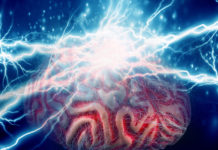Stop Saying This, Part Two: “Reframing” and More
Myths around reframing, having to love yourself before someone else can love you, and being triggered are all addressed in this blog.
Is COVID-19 Making Everybody Crazy?
The response to the pandemic promises a vast expansion of the market for therapists, but such claims carry great potential for harm, adding to the burdens of people with upsetting but understandable, deeply human feelings.
Racism and Radical Psychiatry
A radical caucus within the American Psychiatric Association tried to combat systemic racism in the 1960s. So why is the APA still behind the times?
Suicide & Candy Corn: The Utility and Challenges of Risk Assessments
Researchers admit their suicide risk assessments work only about as well as random guessing, and they can lead to harm. We can instead focus on finding new ways to form connections that might help tether someone to this world.
Kerry O’Malley: A Personal Struggle Against Forced Medication
Neglect for personal autonomy is a pervasive attitude in the mental health system. No human being should be stripped of their dignity and autonomy, much less a vulnerable 74-year-old woman.
Is It Time to Rethink Mental Illness in Light of the Pandemic?
Now that so many are experiencing distress because of the coronavirus, can we not appreciate that many who have been labeled mentally ill have long experienced these kinds of hardships?
Defunding the Police: Replacing Guns With Prescription Pads Is Not the Answer
Mental health workers responding to emergency calls and crises results in coercion, labelling and othering, paternalism, force, and, yes, even violence, all under the guise of “for your own good.”
Does Stranger Mean Danger?
Are those diagnosed with “mental illness” more dangerous than other people? Or have we evolved to sense danger from anything that we believe to be different or "strange"?
Stop Saying This: Phrases That Sound Helpful, But Are Actually Gaslighting, Part 1
Therapists seem to have a reference book where they go to find phrases that sound really helpful but are actually gaslighting and self-serving.
Black Suicidality and Mental Health #BlackLivesMatter
Suicides in Black communities can be understood to be caused by an institutionalized inequality that requires Black folks to negotiate their quality of life with life itself.
End Police “Wellness Checks.” Now.
If you are a mental health worker or advocate, there's a way to help dismantle police brutality and systemic racism in the U.S.
We Must Not Be Silent On George Floyd & Systemic Racism.
Dear Mad in America community: How much have we grown? Can we join together in working toward our liberation, bound together as activists?
Withdrawing Kids from Psych Drugs: Why, How, and When
Here are methods for reducing or eliminating a child's psychiatric medications that I have seen work well over years of supporting families through this process.
Recovery: Stressing the Social Basis of the Process
Recovery involves engaging in new material and social contexts and in open dialogues where new ways of understanding and handling the situation are created.
Canadian Mental Health Legislation and the CRPD
Psychiatric survivors in Canada tell the UN that Canada is not complying with the United Nations Convention on the Rights of Persons with Disabilities (CRPD).
Supporting Children and Parents to Withdraw from Psychiatric Medication
The main problem with prescribing psychiatric drugs to children is that it hasn’t been very effective.
“We Are All Mad!” A Call for the Development of an International Network Among...
I can imagine all the “MAD” affiliates working together regarding specific initiatives or projects.
Jinxed: The Persecution of Evan Durst Kreeger
I am very concerned that Evan is about to be devoured by psychiatry's maw. Things could be different if Evan were able to hire an attorney or attorneys to deal with all of these different legal actions coming at him and otherwise protect his interests such as sue the trustees for their unconscionable actions, but as I have indicated, his trustees have cut off his money so he can't hire such an attorney or attorneys.
Three Recent Genetics Books and Twin Studies’ Indefensible “Equal Environment Assumption”
Although Mitchell and Murray cited twin studies as the main source of evidence in support of their claims, these studies are based on a long-controversial assumption which they were unable to defend in their books, or on Twitter.
12 Essential Facts About Psychiatry
With these twelve facts, you are equipped to defend against the misinformation propagated by academic psychiatry, Big Pharma, and the laypeople they target. You are encouraged to use this knowledge to (firmly but respectfully) challenge statements you hear in passing or from loved-ones such as “He is mentally ill,” “I have a chemical imbalance and these drugs help correct it,” or any other commonly accepted falsehoods that the above facts expose.
Should You Ever Ask Someone “Are You Suicidal?”
For every person “Are you suicidal?” may assist, there are many more of us who are scared into silence when those words are uttered. Why? Well, “Are you suicidal?” is, in fact, the king of the suicide risk assessment questionnaire. “Are you suicidal?” has become the red, neon, flashing sign that screams “Stop! Don’t talk to me!” Perhaps this might just explain why suicide risk assessments are well known not to work.
Electric Shock Update: Allegations of Regulatory Misconduct Filed with the FDA
The New York State Office of Mental Health (OMH) is publishing false and misleading advertisements about electric shock services under the guise of educational materials without even acknowledging the Food and Drug Administration (FDA) December, 2018 Rule.
Should We Diagnose Donald Trump?
I have been involved in hundreds of commitment hearings in which psychiatric diagnoses were crucial. In that context, I have never witnessed the presence of all three factors: (1) the transparent (honest) use of diagnostic labels (which includes the acknowledgment of the inherent biases built into the labels as well as their limited validity), (2) allowing full voice to and full acknowledgment of the labeled person’s view of reality, and (3) using the labels in a manner that produced a useful understanding, which in standard mental health practice would require that the understanding be significantly more beneficial to the labeled person rather than the labeler.
Does Pharma Need the Entrepreneur?
Capitalists don’t discover new medicine; they invest in it. The incentive to do so, as everyone will admit, is to return a profit. Most would also agree that this profit shouldn’t be "too large," but enough to encourage adequate investment into new treatments. However, the idea that this is a well-functioning system, and indeed the best way of producing medicine, is a myth.
Beyond the Buzzwords: What Does Trauma-Informed Care Truly Mean?
Rethinking Psychiatry's March meeting was a rich discussion of what "trauma-informed care" means. It is an important idea, but can be an empty buzzword. Our goal was to have a deeper, more meaningful conversation on what this term really means. A diverse group from the local community attended and we had a really interesting, thoughtful discussion.

































